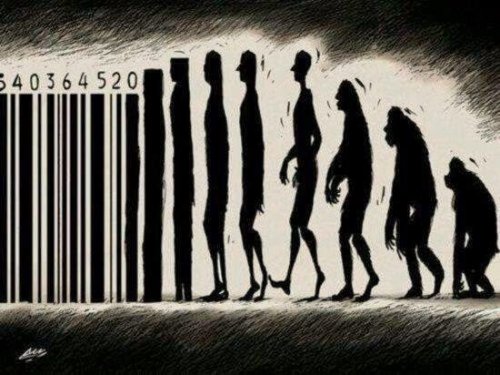Several years ago I recall a story from one of our older members who talked about World War II and his fathers and uncles who were drafted into the Army to kill Nazis (the propaganda line). But the way their mother put it was different. The mother of her sons sent overseas to fight said her boys were heading across the ocean to kill their uncles and cousins. Her family was German and the product of fairly recent immigration to the US. She was not imagining things. She was telling the truth. She had many relatives in Germany and her sons were heading over to meet their uncles and cousins on the battlefield. Her sons knew this and they knew also that they were battling for freedom against people with whom they had much in common in heritage and culture but not in ideology.
Today it is hard for us to see such connections even with our neighbors down the street. We do not know their names or have any idea who they really are and so they are not the same as us. It is a rather benign but still potent example of this dehumanization. It happens when we view other people as strangers -- people who were once somewhat neutral in our esteem but through the fear of crime and covid and the politics of division have become enemies. Every stranger is now a potential enemy. The way we have divided up our politics has created the impression that if we disagree, we cannot get along. So the idea that elections have consequences has come to mean that votes give us the moral authority to stick it to those who ran against us and those who voted for them. Certainly this was behind Hillary Clinton's famous like about the despicables and the outrage against Donald Trump that hobbled his presidency and now dogs him personally two years out of office.
If there are those who say this is only a liberal phenomenon, one need only look at the fragmentation of conservatives against the willingness of progressives to find common cause and allies with people at every stage of their cause. Tolerance does not require agreement (at least it does not in the dictionary) but disagreement seems to demand intolerance. Such is the state of affairs in America today and throughout the world. The conservatives view as enemies those who do not agree with them right down the line but liberals find partners in those who disagree on much of the agenda but who can help advance the cause in other ways.
Abortion is not simply about protecting the unborn. It is about protecting us from ourselves. When the child in the womb -- in some states right up until the moment of birth -- will not be regarded as or given the legal protections to their humanity, it is not only the baby who suffers. We all do. If we can ignore the face of the child in the womb and turn that child into an it, something related to health care or choice, we have not simply robbed the child in the womb of his or her humanity, we have diminished our own. The same thing can be said about legal, assisted suicide or euthanizing the aged and infirm. As soon as we see life as a personal possession to be discarded when no longer wanted or needed, we have successfully dehumanized the troubled and the elderly.The whole cause of the Gospel is to reinforce the face of people. Jesus did not become human. He became man, with a mother, a family, a name. He was born to a line of people. The salvation that He accomplishes is our rescue from oblivion and anonymity, from being nameless and faceless people to a people called by name. This is surely what St. Peter means when he says once we were no people but now we are God's people. Left to ourselves, it was always a dehumanizing path -- from the Tower of Babel to the waters of the flood to the dark, coldness of death and the grave. Our Lord gives us no fragile identity which we must flesh out and choose but an identity rooted outside ourselves and in Him. It is not something we must pursue or discover (as if life were a treasure hunt to find ourselves) but a gift given by the God who esteemed us more worthy than His Son and whose Son loved us even more than Himself. We could never discover this on our own so this same God sent forth His Spirit to bring us to this wondrous realization. Now the Church proclaims that the rescue of our humanity is born of baptismal water and the Word through which the Spirit enters the heart and transforms the mind. The Gospel takes nothing away from us except sin and its death and it bestows to us what we squandered away in Eden in hopes of being gods -- our very human and personal identity as God's own, created anew in Christ Jesus for the good works that was our purpose from before the foundation of the world and for the life that no one and nothing can ever take from us or we surrender again.









/waterdrops-splashing-on-water-surface-522937305-582494ed5f9b58d5b15af89b.jpg)










